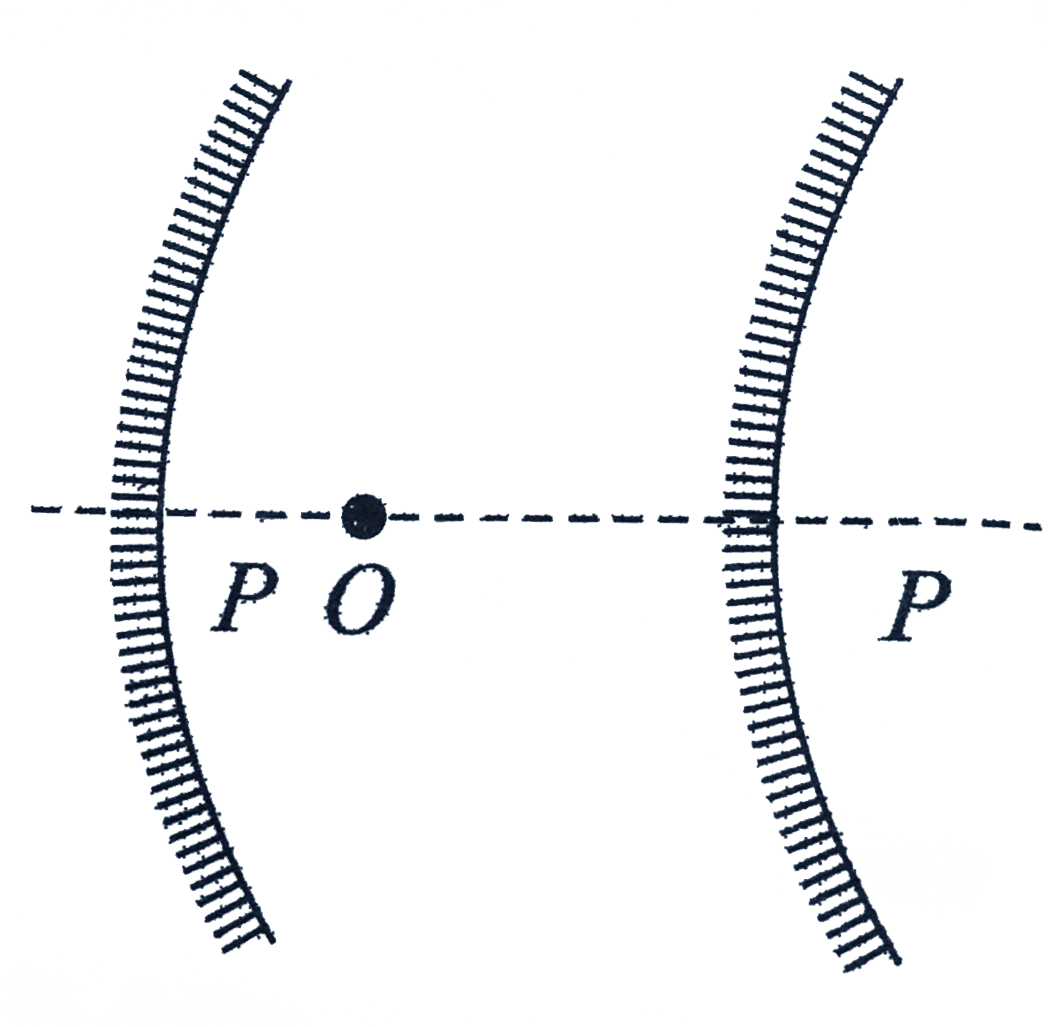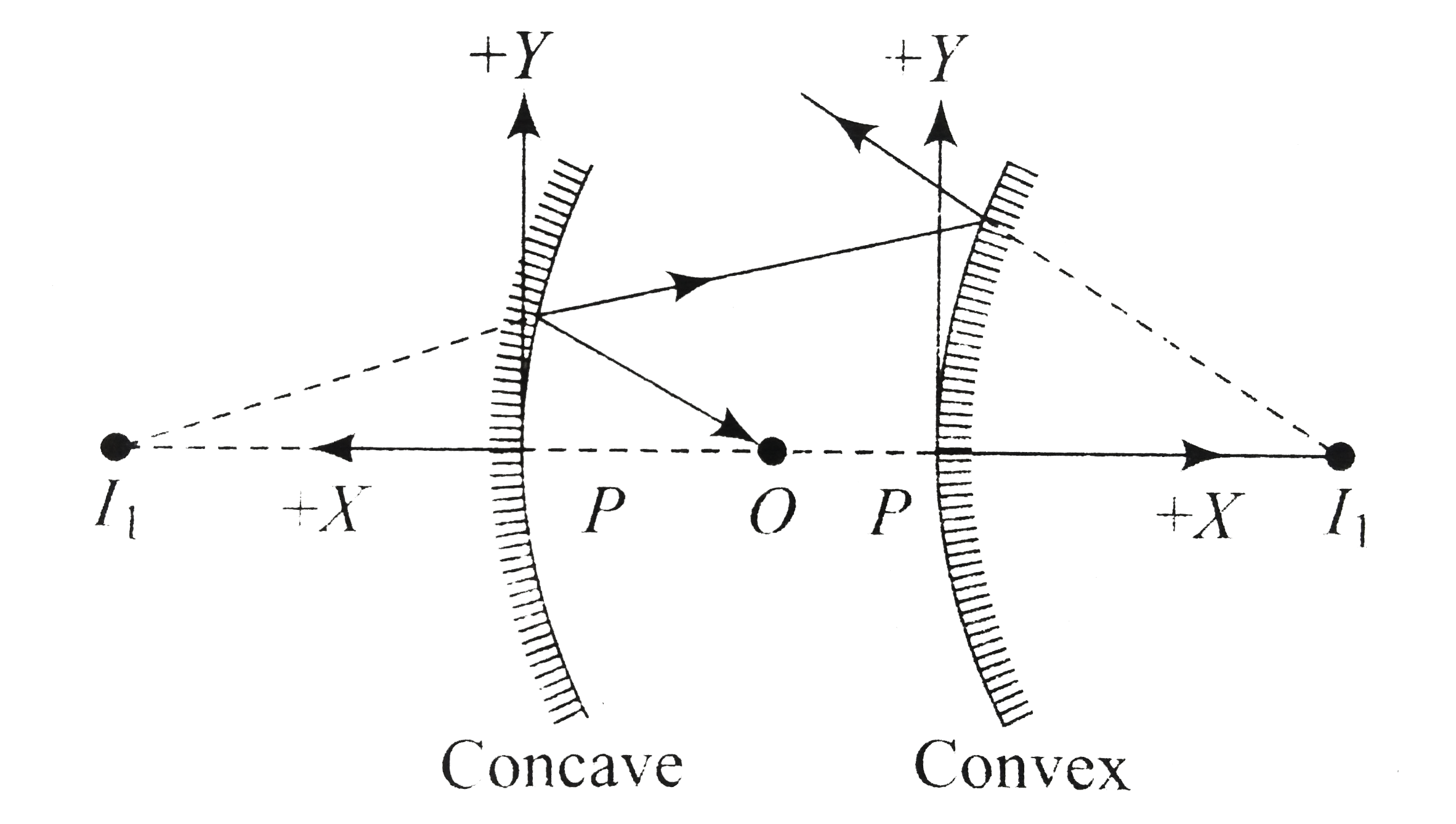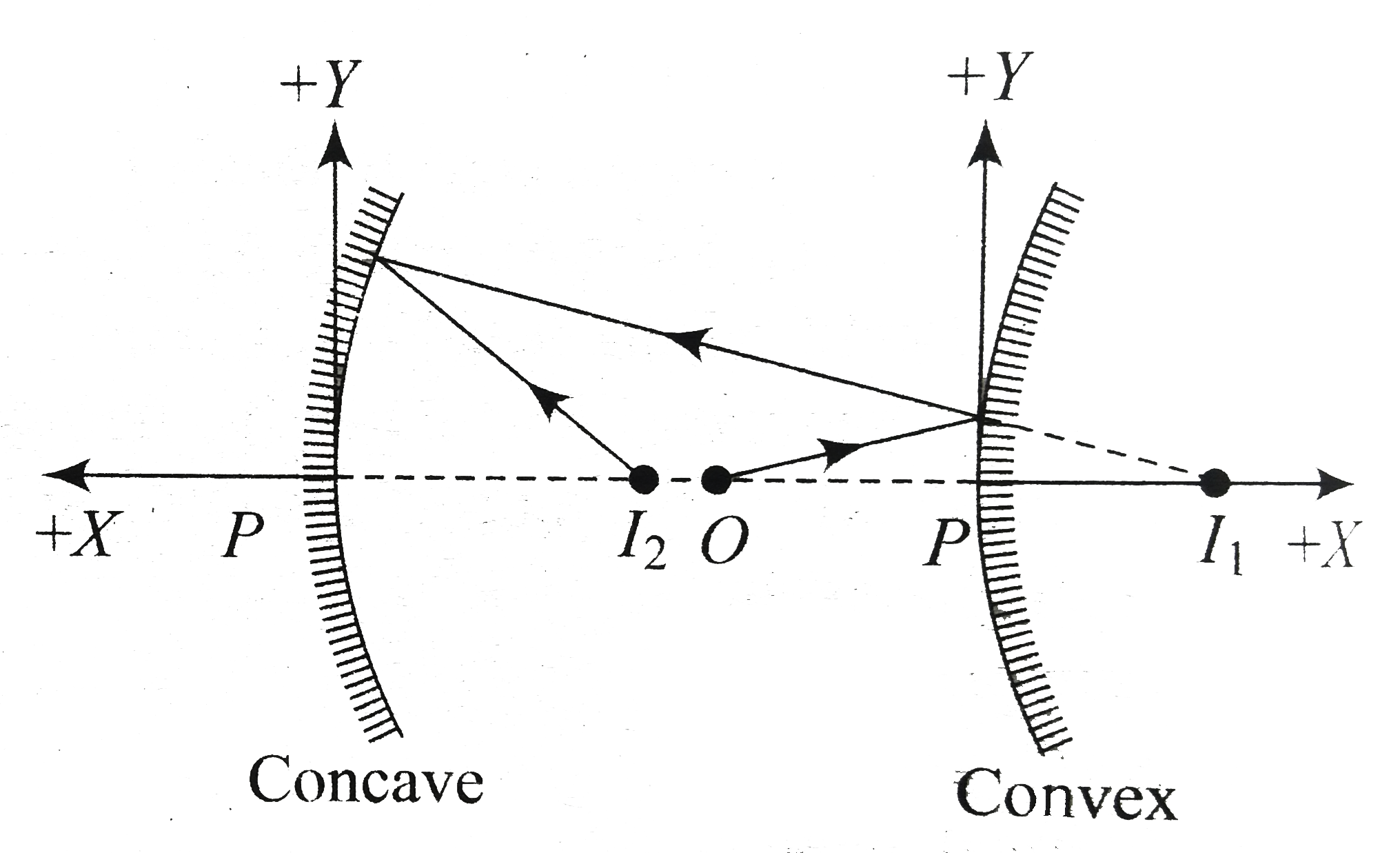A concave mirror of focal length 10cm is placed in front of a convex mirror of focal length 20 cm. The distance between the two mirrors is 20cm. A point object is placed 5cm from the concave mirror. Discuss the formation of image.

Let us consider the case of rays first striking the concave mirror and then the convex mirror.
Concave mirror: Here, u=−5cm and f=−10cm
Substituting in equation
1v+1u=1f, we get v=10cm
Thus, the image is formed 10 cm behind the mirror.
This image now serves as the object for the convex mirror. However, keep ini mind that for convex mirror, all measurements will now be from the pole of this mirror. Furthermore, the sign convention for the convex mirror is shown in figure.
Convex mirror: Here, u=−30cm and f=+20cm
Substituting in equation
1v+1u=1f we get v=12cm
Thus, the image if formed 12 cm behind the convex mirror. This image will now be the object for the concave mirror and the process can be repeated.
Refere to the following figure. Here, for the convex mirror:
u=−15cm and f=+20cm
Substituting in equation
1v+1u=1f we get v=+(60/7)cm
Thus, the image is formed (60/7) cm behind the convex mirror
The image now serves as the object for the concave mirror.
For the concave mirror :
u=−(20+60/7)=200/7 and f=−10cm
Substituting in the equation
1v+1u=1f, we get v=−200/13
The image if formed (200/3) cm in front of the concave mirror.


Topper's Solved these Questions
- BOOK - CENGAGE PHYSICS ENGLISHCHAPTER - GEOMETRICAL OPTICSEXERCISE - Exercise1.325videos
GEOMETRICAL OPTICS
- BOOK - CENGAGE PHYSICS ENGLISHCHAPTER - GEOMETRICAL OPTICSEXERCISE - Exercise1.412videos
GEOMETRICAL OPTICS
- BOOK - CENGAGE PHYSICS ENGLISHCHAPTER - GEOMETRICAL OPTICSEXERCISE - Exercise1.114videos
GEOMETRICAL OPTICS
- BOOK - CENGAGE PHYSICS ENGLISHCHAPTER - ELECTRON,PHONTS,PHOTOELECTRIC EFFECT & X-RAYSEXERCISE - dpp 3.315videos
ELECTRON,PHONTS,PHOTOELECTRIC EFFECT & X-RAYS
- BOOK - CENGAGE PHYSICS ENGLISHCHAPTER - HEATING EFFECT OF CURRENTEXERCISE - Thermal Power in Resistance Connected in Circuit27videos
HEATING EFFECT OF CURRENT
Similar Questions
An object is placed 40 cm from a concave mirror of focal length 20 cm. The image formed is
View SolutionFrom a concave mirror of focal length 20 cm. match the following:
 View Solution
View SolutionAn object is placed at 20 cm from a convex mirror of focal length 20 cm. The distance of the image from the pole of the mirror is
View SolutionFor a concave mirror of focal length 20 cm, match the following
 View Solution
View SolutionAn object is placed at 20 cm from a convex mirror of focal length 10 cm. The image formed by a mirror is
View SolutionAn object is placed midway between a concave mirror of focal length f and a convex mirror of focal length f. The distance between the two mirrors is 6f. Trace the ray that is first incident on the concave mirror and then the convex mirror.
View SolutionA biconvex lens of focal length 15cm is in front of a plane mirror. The distance between the lens and the mirror is 10cm. A small object is kept at distance of 30cm from the lens. The final image is
View SolutionAn object is placed 42 cm, in front of a concave mirror of focal length 21 cm. Light from the
concave mirror is reflected onto a small plane mirror 21 cm in front of the concave mirror
Where is the final image?View SolutionA concave mirror of focal length 10cm and a convex mirror of focal length 15cm are placed facing each other 40cm apart. A point object is placed between the mirrors, on their common axis and 15cm from the concave mirror. Find the position and nature of the image produced by successive reflections, first at the concave mirror and then at the convex mirror.
View SolutionA convex lens of focal length 20cm is placed coaxilly with a convex mirror of radius of curvature 20 cm. The two are kept 15 cm apart. A point object is placed 40 cm in front of the convex lens. Find the position of the image formed by this combination. Draw the ray diagram showing the image formation.
View Solution

